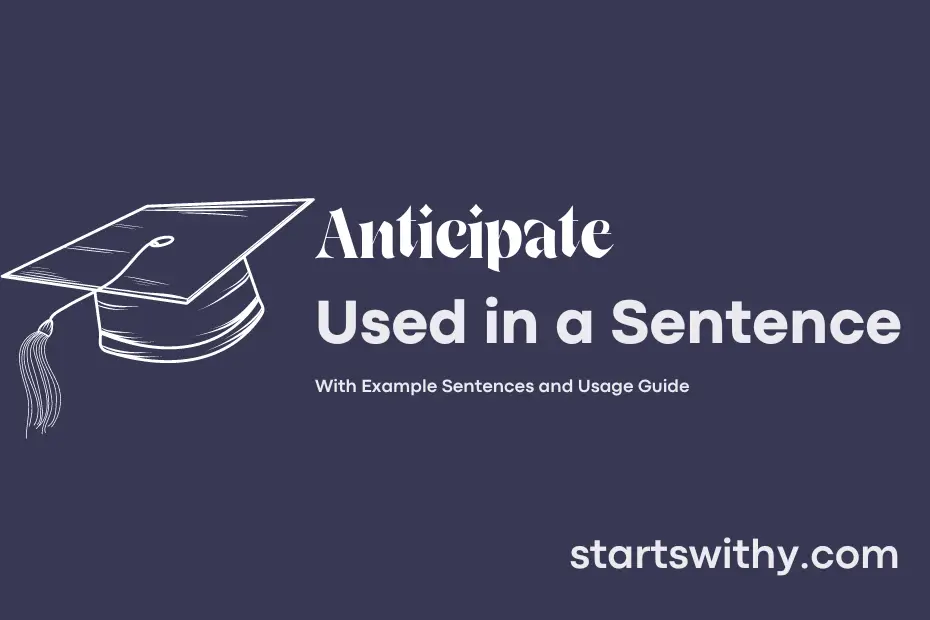Anticipate means to expect or foresee something happening based on a prediction or intuition. It involves mentally preparing or making arrangements for potential future events or outcomes.
In various situations, the ability to anticipate can help individuals and organizations plan ahead, mitigate risks, and adapt to changes more effectively. From anticipating market trends in business to foreseeing potential conflicts in personal relationships, the power of anticipation can be a valuable asset in navigating daily challenges.
7 Examples Of Anticipate Used In a Sentence For Kids
- We anticipate the arrival of the monsoon season.
- We anticipate celebrating Diwali with our family and friends.
- I anticipate getting a new toy on my birthday.
- The students anticipate having a fun field trip next week.
- We anticipate learning new things in school every day.
- I anticipate waking up early to watch the sunrise.
- The birds anticipate the arrival of spring to build their nests.
14 Sentences with Anticipate Examples
- Anticipate long queues at the campus cafeteria during lunch hours.
- Make sure to anticipate heavy traffic while commuting to college during peak hours.
- Anticipate group study sessions during exam season.
- Don’t forget to anticipate last-minute changes in the college timetable.
- It’s important to anticipate possible delays in submitting assignments.
- College students should anticipate crowded libraries during exam week.
- Anticipate technical glitches during online classes.
- Anticipate a high demand for reference books in the college library before exams.
- Always anticipate unexpected expenses during college events.
- Prepare to anticipate limited availability of study rooms in the college library.
- Anticipate campus events clashing with assignment deadlines.
- Anticipate a surge in internet usage during online exams.
- Students should anticipate disturbances during hostel room inspections.
- Remember to anticipate the need for backup study materials in case of power outages.
How To Use Anticipate in Sentences?
Anticipate means to expect or predict something will happen in the future.
To use Anticipate in a sentence, follow these steps:
-
Identify the situation: Consider what you are expecting or predicting will occur.
-
Choose the right tense: Depending on when the anticipation is happening, choose the appropriate verb tense (past, present, future).
-
Structure your sentence: Place Anticipate in your sentence before the action you are expecting. For example, “I anticipate that it will rain later today.”
-
Use context clues: Sometimes it is helpful to provide context before or after your sentence to help explain your anticipation.
-
Practice with various examples: Try using Anticipate in different sentence structures and contexts to make sure you understand its usage.
Remember, Anticipate is a versatile word that can be used in various situations. Utilize it when expressing your expectations or predictions about future events. With practice, you will become more comfortable incorporating Anticipate into your everyday vocabulary.
Conclusion
In conclusion, anticipating potential outcomes or events is a common practice that helps individuals prepare for the future. By envisioning what may happen and taking proactive steps, people can better navigate various situations and minimize surprises. Anticipating can also lead to improved decision-making, as it allows for better planning and risk management.
Whether it’s in personal relationships, professional settings, or everyday life, the ability to anticipate can be a valuable skill. By considering possible scenarios and being prepared, individuals can approach challenges with confidence and adaptability. Overall, learning to anticipate can lead to a more strategic and successful approach to problem-solving and decision-making.



